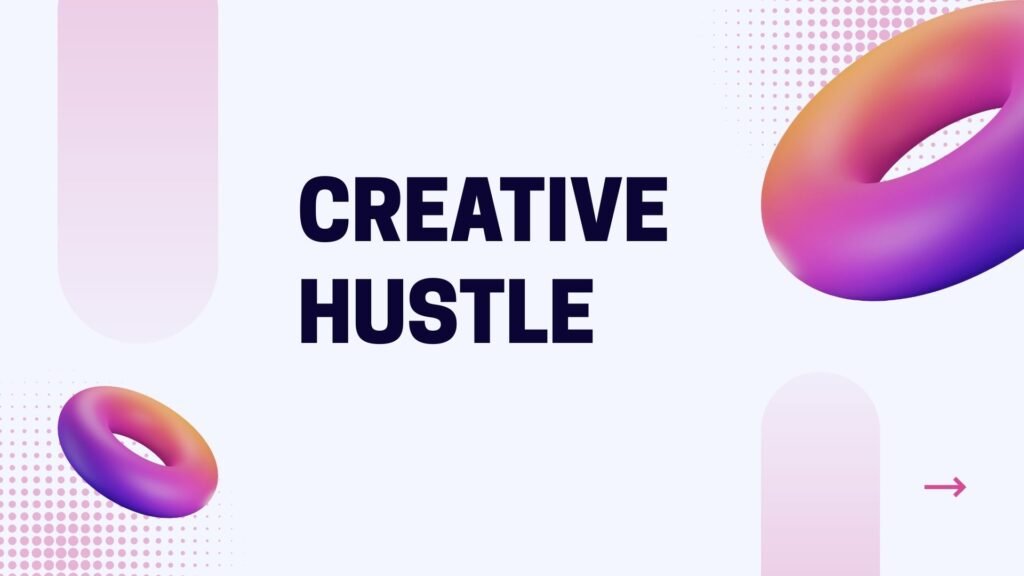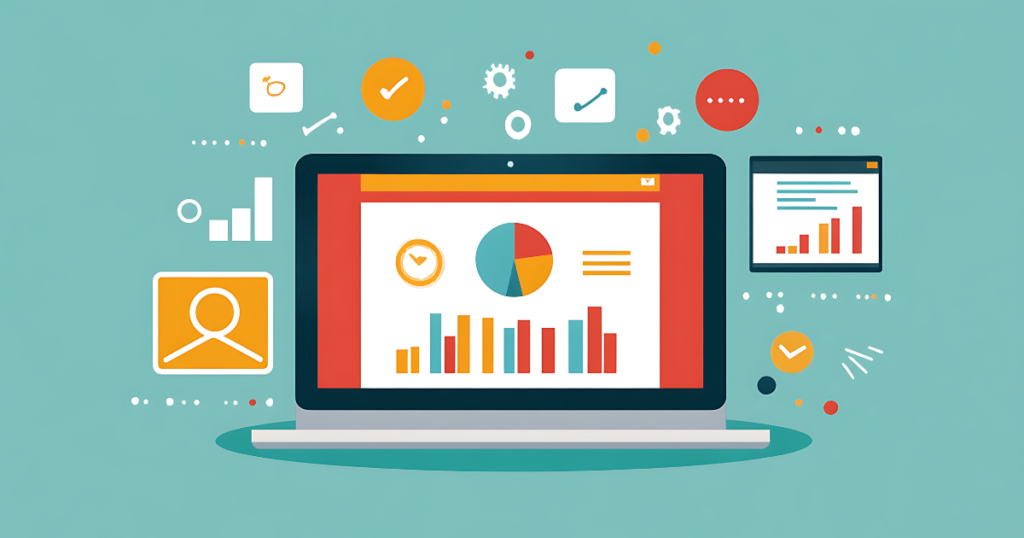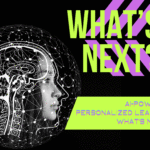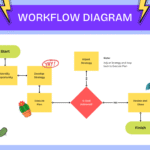Now Reading: AI-Powered Personalized Learning: What’s Next?
-
01
AI-Powered Personalized Learning: What’s Next?
AI-Powered Personalized Learning: What’s Next?

Introduction to AI-Powered Personalized Learning
AI-powered personalized learning is a transformative approach that tailors educational experiences to meet the distinct needs and preferences of individual learners. In the rapidly evolving landscape of education, the traditional one-size-fits-all methodology is becoming increasingly inadequate. Instead, there is a growing recognition that students possess unique learning styles, strengths, and challenges. This realization has prompted the incorporation of artificial intelligence (AI) into educational environments, enabling the delivery of customized learning experiences that facilitate more effective and engaging educational outcomes.
The core premise of personalized learning is to modify educational content and pacing according to the specific requirements of each student. AI technologies, such as machine learning algorithms and data analytics, provide educators with powerful tools to analyze students’ learning behaviors and preferences. These insights empower teachers to design individualized learning pathways that enhance engagement, motivation, and retention. By leveraging AI capabilities, educators can identify knowledge gaps and adapt teaching strategies accordingly, ensuring that learners receive the support they need to thrive academically.
As we continue to explore the possibilities offered by AI in education, it is clear that personalized learning represents a significant shift in how educational experiences are designed and delivered. This evolution holds great promise for addressing the diverse needs of modern learners, paving the way for enhanced academic success and lifelong learning.
Current State of AI in Education
The integration of artificial intelligence (AI) into educational systems is reshaping traditional teaching methods and enhancing the learning experience. Currently, several tools and technologies leverage AI to facilitate personalized learning, ensuring that educational content is tailored to meet the individual needs of learners. Adaptive learning platforms, which utilize algorithms to adjust material based on students’ performance and preferences, have gained significant traction. These platforms assess a learner’s understanding in real-time, customizing lessons, quizzes, and activities to better align with their proficiency levels.
Moreover, AI tutors have emerged as valuable resources in various educational settings. These digital assistants provide personalized instruction and support, often available 24/7. By analyzing student data, such as engagement levels and content mastery, AI tutors can offer targeted feedback and recommendations. This personalized approach not only aids students in grasping complex concepts but also alleviates some of the burdens on teachers, allowing them to focus on more specific instructional tasks.
In addition to adaptive learning and AI tutoring, predictive analytics has become an essential tool in education. By examining historical data and learning patterns, institutions can identify at-risk students and implement early interventions. This proactive approach helps educators tailor their strategies to support learners who may struggle, enhancing overall student success and retention rates.
The benefits of employing AI in educational environments extend beyond improving personalized learning experiences. They also include greater accessibility for diverse learners and the efficient management of educational resources. As educational technology continues to evolve, the potential for AI to affect transformative change in pedagogy and learning outcomes remains significant. This evolution not only enhances the educational journey for students but also empowers educators to foster an environment that promotes growth and development tailored to individual learning profiles.
Predictions for AI in Personalized Learning by 2025
As we look toward 2025, the integration of artificial intelligence (AI) into personalized learning is anticipated to make profound changes in the educational landscape. Experts predict that AI will not only enhance current methodologies but also introduce entirely new pedagogical frameworks that allow for more tailored educational experiences. This shift will emphasize adapting curricula to meet individual student needs, thereby fostering an environment where personalized learning can thrive.
One significant trend is the development of advanced AI algorithms capable of analyzing student performance in real-time. These algorithms will leverage data analytics to construct dynamic learning paths for students, ensuring that they are always engaged and challenged at appropriate levels. By using data to identify learning gaps and preferences, educational AI systems will enable instructors to modify instructional strategies, thereby enhancing the effectiveness and personalization of education.
Moreover, we can expect a greater emphasis on the integration of immersive technologies such as virtual and augmented reality. These technologies will complement personalized learning by providing enriching simulations and interactive experiences tailored to each learner’s interests and learning pace. This approach aligns with a pedagogy that values experiential learning, making subjects more relatable and enjoyable.
Additionally, collaborative AI tools are anticipated to facilitate peer-to-peer learning and mentorship through personalized platforms. These tools will empower students to engage with one another, sharing insights and strategies that can enhance their learning experiences. Such collaboration is essential in creating a community-centric educational environment, fostering both social and cognitive skills.
Finally, as we approach 2025, we should be prepared for educational policies and frameworks to evolve, reflecting the increasing reliance on AI technologies in personalized learning. This evolution will require educators to adapt continuously, ensuring that they remain equipped to harness AI’s potential, ultimately transforming the future of education.
Key Technologies Driving Personalized Learning
In the realm of education, artificial intelligence (AI) has introduced transformative methodologies that support personalized learning. Central to this evolution are several key technologies contributing to creating tailored educational experiences that cater to individual student needs.
Firstly, machine learning algorithms play a significant role in analyzing and interpreting vast amounts of educational data. By examining patterns in students’ learning behaviors, these algorithms allow educators to understand how different learners interact with content. Consequently, personalized learning plans can be developed, ensuring that instructional materials resonate with students’ unique progress and preferences.
Natural language processing (NLP) is another pivotal technology that enhances personalized education. NLP enables AI systems to understand and generate human language, allowing for more interactive and responsive educational tools. For instance, conversational agents powered by NLP can facilitate real-time feedback and assistance, making learning more accessible and engaging. This technology not only supports language learning but also helps in making content approachable for students with varying literacy levels.
Data analytics stands out as a critical component underpinning the effectiveness of personalized learning. By systematically collecting and analyzing student data, educational institutions can gain insights into learning outcomes and overall student performance. These insights inform educators about what strategies yield the best results, allowing them to adapt their teaching methods swiftly. Moreover, predictive analytics can identify at-risk students, enabling timely interventions to ensure that each learner remains on track.
Lastly, user-facing interfaces are instrumental in delivering personalized learning experiences effectively. Whether through adaptive learning platforms or educational apps, these interfaces provide intuitive navigation tailored to learners’ preferences. By ensuring that users can easily engage with content and receive customized feedback, educational platforms can significantly enhance students’ overall engagement and success in their learning journeys.
Challenges and Considerations in Implementation
As the integration of AI-powered personalized learning in education systems becomes more prominent, numerous challenges and considerations emerge. Educators and institutions must navigate the complexities inherent in deploying these advanced technologies, especially concerning data privacy. With personalized learning systems collecting vast amounts of student data to tailor educational experiences, concerns arise regarding the storage, usage, and protection of sensitive information. Ensuring compliance with data protection regulations, such as GDPR and FERPA, is essential to mitigate potential risks and build trust among stakeholders.
Additionally, resource allocation poses a significant challenge. Implementing AI solutions requires not only financial investment in technology but also a commitment to supporting the necessary infrastructure. Many institutions may find themselves lacking the required hardware or software systems to support effective personalized learning initiatives. Balancing budget constraints while prioritizing funding for AI resources will be crucial for achieving successful implementation.
Infrastructure needs are compounded by the demand for reliable internet connectivity and digital tools that enable personalized learning experiences. In many regions, particularly in rural or underserved areas, these essential resources may be limited, restricting access to AI-driven education solutions. Institutions must therefore assess their current capabilities and develop strategic plans to enhance their technological foundations.
Moreover, for AI-powered personalized learning to be effective, educators must be adequately trained in using these tools. Professional development programs should focus on equipping teachers with the skills necessary to interpret data, adapt instruction, and leverage AI systems to enhance the learning experience for each student. Comprehensive training will empower educators to seamlessly integrate these technologies into their teaching practices, ultimately fostering an environment conducive to personalized education.
The Role of Educators in AI-Powered Learning Environments
The integration of artificial intelligence (AI) in personalized learning frameworks marks a significant shift in educational approaches. Educators are now presented with unique opportunities to enhance their teaching strategies through AI tools, enabling a more tailored educational experience for each student. These advanced technologies are designed to analyze student data, allowing educators to identify individual learning styles, strengths, and areas needing improvement, thereby fostering a more engaging learning environment.
As the landscape of education transitions from conventional lecturing to a more collaborative approach, the role of educators is evolving. Teachers are increasingly becoming facilitators of knowledge rather than mere dispensers. This new paradigm encourages them to guide students in navigating their personalized learning journeys. Educators are now tasked with curating and selecting relevant AI tools that align with educational goals and curricular standards, ensuring that students receive the most effective support tailored to their needs.
Moreover, AI-powered systems can assist educators in identifying trends and patterns in learning outcomes, thus empowering them to make data-driven decisions to enhance instructional methods. By employing AI, teachers can not only focus on individual student progress but also leverage insights to adjust their teaching in real-time. This dynamic interaction enables adaptive learning experiences, ultimately resulting in an enriched educational environment that encourages both student engagement and academic achievement.
In addition to employing AI for instructional purposes, educators must also embrace their role as mentors and emotional supporters. As students frequently interact with AI tools, teachers can provide the crucial human element necessary for emotional intelligence, motivation, and resilience within challenging learning scenarios. By blending traditional pedagogical methods with the advantages of AI, educators can create a balanced educational ecosystem that not only meets academic needs but also nurtures social and emotional growth.
Case Studies: Successful Implementation of AI in Personalized Learning
The integration of artificial intelligence (AI) in personalized learning has transformed educational landscapes globally. Numerous institutions have successfully adopted AI-powered platforms to tailor learning experiences to individual student needs, and these case studies reveal the diverse approaches and outcomes achieved.
One notable example is the work done by the University of Michigan. They implemented an AI-driven system called the Digital Innovation Greenhouse, which analyzes student data to customize learning pathways. This initiative focuses on identifying strengths and weaknesses in each learner’s knowledge base. By leveraging AI, instructors can adjust course materials and suggest resources that are aligned with students’ specific learning trajectories. Early indicators show improved grades and higher retention rates among enrolled students, highlighting the efficacy of personalized learning in higher education.
Another prominent case is the deployment of AI tools in K-12 education by DreamBox Learning, a math curriculum program. DreamBox utilizes an adaptive learning model that adjusts the difficulty of tasks in real-time based on student responses. As students engage with the platform, the AI continuously assesses their performance and provides customized feedback. This approach has not only led to significant gains in math proficiency among participants but has also increased student engagement. Additionally, educators have reported that they are better equipped to target instruction based on the insights derived from the system.
Furthermore, Delfina Primary School in Australia has integrated AI software to support personalized learning among its diverse student body. The school’s initiative focuses on using AI to analyze individual learning preferences and adapt lesson plans accordingly. Teachers can access detailed reports generated by the AI to tailor their teaching strategies effectively. This has resulted in enhanced student satisfaction and improved academic performance, showcasing the power of personalized learning through technology.
These case studies illustrate the potential of AI in creating adaptive educational environments that foster individual growth and success. By embracing these innovative practices, educational institutions can pave the way for a more personalized and effective learning experience.
Future Implications for Learners and Educators
The rapid advancement of artificial intelligence (AI) is set to reshape the educational landscape significantly, particularly through the implementation of personalized learning. As educational institutions begin to integrate AI tools, both learners and educators will experience profound changes in the way they engage with knowledge and skills development.
For learners, AI-driven personalized learning promises a tailored educational experience that addresses individual strengths and weaknesses. Gone are the days of a one-size-fits-all approach; instead, students can expect customized learning paths that adapt to their pace and preferred learning methods. This adaptability not only facilitates a deeper understanding of subjects but also promotes higher engagement and motivation, ultimately contributing to improved learning outcomes.
Moreover, the use of AI in education may enhance career readiness. As labor markets evolve, it is essential for learners to acquire relevant skills that align with industry demands. Personalized learning systems can guide students toward acquiring these competencies by analyzing labor market trends, thereby allowing them to focus on skillsets that are vital for their future careers. Such alignment between education and workforce needs ensures that learners are better prepared to navigate the complexities of modern employment scenarios.
On the educator front, AI-driven personalized learning tools will serve to augment their capabilities, allowing them to focus on fostering critical thinking and problem-solving skills among students. Educators can leverage data analytics provided by AI systems to identify learning gaps and tailor their teaching strategies accordingly. This shift empowers educators to become facilitators of learning rather than mere disseminators of information, thereby fostering more dynamic classroom environments.
As AI continues to permeate the educational field, understanding its long-term implications for personalized learning is crucial for both learners and educators. These changes herald a new era of education that prioritizes individual needs and adaptability, equipping all stakeholders for a future defined by continuous learning and evolving skill sets.
Conclusion: Embracing the Future of AI in Education
As we reflect on the transformative potential of AI-powered personalized learning, it is evident that the integration of artificial intelligence in education paves the way for a more tailored and effective learning experience. Personalized learning, driven by sophisticated algorithms, enables educators to address the unique needs and preferences of each student. This approach not only enhances engagement but also cultivates a deeper understanding of the material, leading to improved academic outcomes.
Throughout this blog post, we have explored the various ways AI can facilitate individualized instruction, from adaptive learning systems that adjust content based on student performance to intelligent tutoring systems that offer real-time feedback. These advancements point towards a future where education is not a one-size-fits-all model but rather a dynamic interaction between learners, educators, and technology. Ensuring that students receive the right support at the right time is critical in this evolving educational landscape.
As educators, policymakers, and stakeholders, it is essential to embrace these developments and invest in the necessary infrastructure to support AI in education. This commitment will foster an environment where personalized learning can thrive, benefitting students from diverse backgrounds and learning capabilities. Collaboration among all parties involved is paramount to harnessing the full potential of AI technology, ensuring equitable access to high-quality education tailored to individual needs.
In conclusion, the future of personalized learning utilizing AI is bright, filled with opportunities for innovation and improvement in educational practices. By embracing these advancements, we can create a more inclusive and effective educational system, equipping students with the skills required to succeed in a rapidly changing world. It is time to champion this remarkable evolution and advocate for the integration of AI in our educational frameworks, shaping the next generation of learners.





















